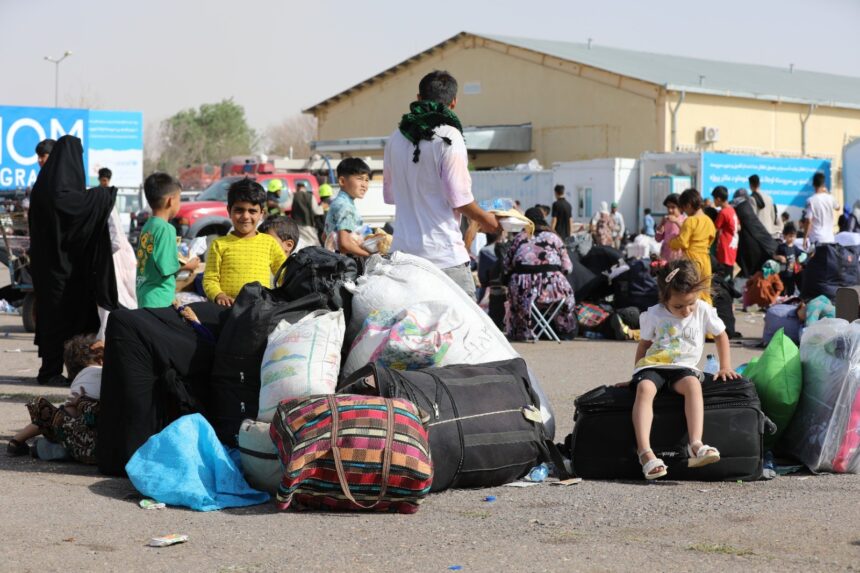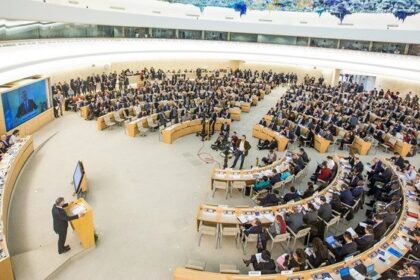RASC News Agency: In the past week alone, more than 45,000 Afghanistani migrants have been forcibly expelled from neighboring Iran and Pakistan, underscoring a deepening humanitarian crisis that continues to push millions into uncertainty. The figures, released daily by the United Nations High Commissioner for Refugees (UNHCR) and the Taliban’s self-styled “Commission for Refugees,” reveal the relentless scale of deportations and the absence of any meaningful state protection for Afghanistan’s displaced citizens.
Pakistan carried out the majority of expulsions, deporting 38,953 migrants within seven days. Iran expelled 6,456 individuals during the same period. Deportees were pushed back into Afghanistan through its main border crossings: Torkham, Spin Boldak, Bahramcha, Islam Qala, and Pul-e Abrisham.
The numbers mark a significant increase compared to the week of September 13–19, when Pakistan deported 32,604 individuals and Iran expelled 9,200. The steady escalation reflects a hardening stance in both countries, which are accelerating deportations without regard for the humanitarian fallout.
On Saturday, Pakistani media reported that the government has decided to shut down 16 refugee camps in Khyber Pakhtunkhwa, Balochistan, and Punjab. The move is expected to trigger the mass return of more than 1.3 million Afghanistani migrants, including those who hold Proof of Registration (PoR) cards documents that previously granted them temporary protection.
Iran has also intensified its deportation campaign. Since the beginning of this week, Iranian authorities have arrested dozens of Afghanistani migrants across multiple provinces, transferring them to detention facilities before expulsion.
The mounting pressure has drawn urgent concern from international agencies. UN High Commissioner for Refugees Filippo Grandi warned that forced returns at this moment could generate “enormous humanitarian strain.” Grandi stressed that Afghanistan is still reeling from the catastrophic earthquake in the east, which has affected more than half a million people, and emphasized that continued international assistance especially from Pakistan remains critical to survival.
Grandi further appealed to Islamabad to suspend deportations, noting that Afghanistan is incapable of absorbing another wave of returnees amid economic collapse, widespread poverty, and post-earthquake devastation.
Yet the deeper issue lies not only with the actions of Iran and Pakistan, but also with Afghanistan’s domestic paralysis. Under Taliban rule, the country has been stripped of institutional functionality and international credibility. The group’s obsession with authoritarian control and its systematic dismantling of rights particularly against women and minorities has left Afghanistan devoid of the social and political foundations necessary to address such crises.
While millions flee in search of security and livelihood, the Taliban have done little beyond issuing hollow statements and presiding over symbolic commissions that offer no real assistance. Their inability to negotiate protection for migrants abroad, combined with their indifference to reintegration at home, leaves returnees trapped in cycles of poverty, displacement, and despair.
The unfolding mass expulsions reveal a grim truth: Afghanistan under Taliban rule is structurally incapable of protecting its people. Unless urgent international coordination bypasses the regime and delivers direct humanitarian support, the forced return of tens of thousands each week threatens to overwhelm a nation already fractured by poverty, disaster, and repression.






